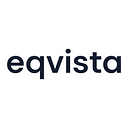SaaS Valuation — How is it done?
The sale of a firm in the rapidly expanding software as a service (SaaS) sector has its own challenges. Owners, investors, and purchasers all need a firm grasp of the idea of SaaS valuation. Valuing a software as a service (SaaS) company, however, is difficult and calls for familiarity with several measures.
According to the US Chamber of Commerce,
A valuation is the method of estimating the economic value of an organization, providing owners with an impartial assessment of its worth. A valuation is often performed when an owner wishes to sell all or a portion of the company or combine with another.
In this article, we’ll go through the main Indicators you’ll need to know to assess a SaaS-based firm appropriately.
Growth of the SaaS Industry:
The worldwide subscription-based software as a service business was estimated to be worth $186.6 billion in late 2022. With a CAGR of 25.25% from 2022–28, this figure is projected to reach $720.44 billion by 2028.
According to the most recent Gartner, Inc. prediction, global end-user expenditure on public cloud services would increase by 20.7% to gain flexibility. This totals $591.8 billion in 2023, rising from $490.3 billion in 2022. This is more than the 18.8% increase from the 2022 growth.
We are witnessing a constant growth in interest in corporate software and SaaS enterprises. The rise is due to SaaS systems that may provide a corporation with the strategic advantage it needs to get insight from enormous volumes of data, as well as cloud-based architecture that enables flexibility and control.
How to Carry Out SaaS Valuation?
Several metrics play a part in the valuation of a SaaS business. A SaaS business may be valued in three different ways, all of which focus on the business earnings. In particular, they are EBITDA, Seller’s discretionary earnings (SDE), and Revenue Multiples.
EBITDA
EBITDA is an acronym that stands for earnings before interest, taxes, depreciation, and amortization. In essence, it assesses a company’s total financial performance.
EBITDA can be calculated as the sum of Net Income, Interest, Taxes, Depreciation, and Amortization. Established SaaS companies, those with an ARR of $5 million or more, often employ this statistic.
SDE
Seller Discretionary Earnings (SDE) is a method of calculating the yearly profit a single company owner might expect to make.
SDE is found when you take Total Revenue after deducting operating expenditures and Cost Of Goods Sold, plus compensation for owners. SaaS businesses with a single owner or an ARR of less than $5 million may benefit from valuation using SDE.
Revenue Multiple
A company’s valuation may be thought of as a multiple of its Annual Recurring Revenue (ARR), and this multiple is often expressed as a number. This criterion may accurately determine the worth of privately held SaaS businesses. To get ARR multiple, just divide the Valuation by the ARR.
Multiple = Valuation / ARR
All of these metrics serve a certain situation for valuation. However, to determine the worth of SaaS firms, a simple formula does exist for textbooks that require just four metrics. These are:
● Annual Recurring Revenue (ARR)
● Growth rate
● Net revenue retention (NRR)
● Gross margin (profitability)
Formula: 10 x ARR x Growth Rate x NRR
The acquired figure is then modified in light of the gross margin. Let’s look at an example to understand valuing a SaaS business with this formula. The Annual Recurring Revenue (ARR) for a SaaS business X is $8,000,000. They have a solid NRR of 100% and a growth rate of 50% each year. If we use this information in a valuation calculation, we get:
Valuation: 10 x 8 x 50 x 100 = $40 million or x5.
The gross margin must be taken into account. Gross margin = (revenue — COGS) / (revenue). In this case, the gross margin would be 87.5% if sales were $8m and expenditures were $1m. We may enhance our value multiple since this number is higher than the typical SaaS growth margin of 75%.
Owners, prospective purchasers, and your management team may all benefit greatly from access to SaaS valuation information. To be successful in any negotiation, all parties must have an accurate picture of the company’s worth. While there is a textbook formula to get SaaS valuation, as we mentioned above, there are several metrics to consider.
Choosing the right SaaS valuation multiples is essential as it will determine your options for acquisition, sale, or exit strategy. Without this information, you might end yourself selling yourself short or making poor investing decisions. This is why you must get help from independent valuation experts like Eqvista. We have a team of NACVA-certified valuation experts for your business to provide everything you need to evaluate a company, make a cap table, and manage your shares. We can even help you with yearly 409a valuations.
